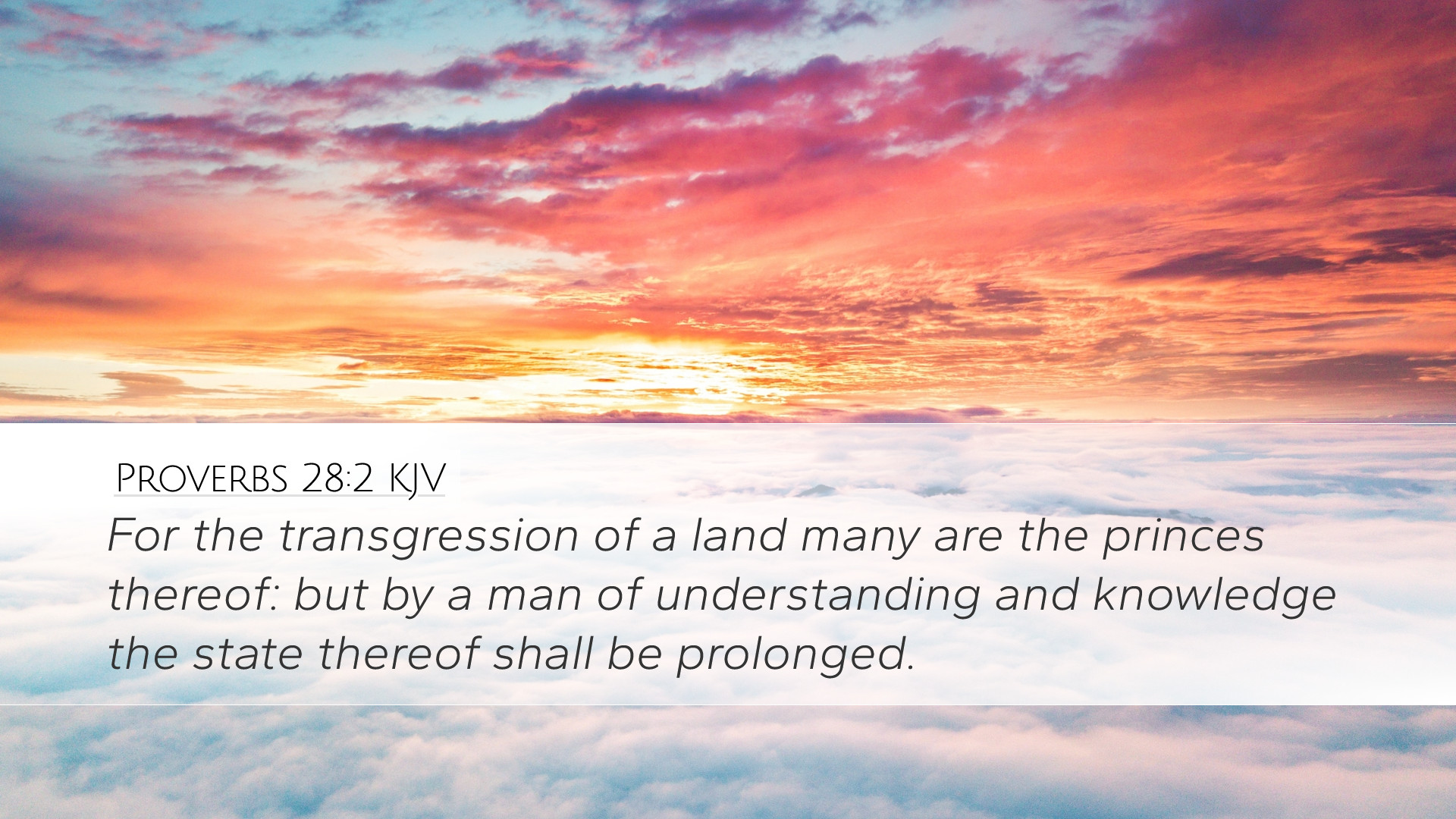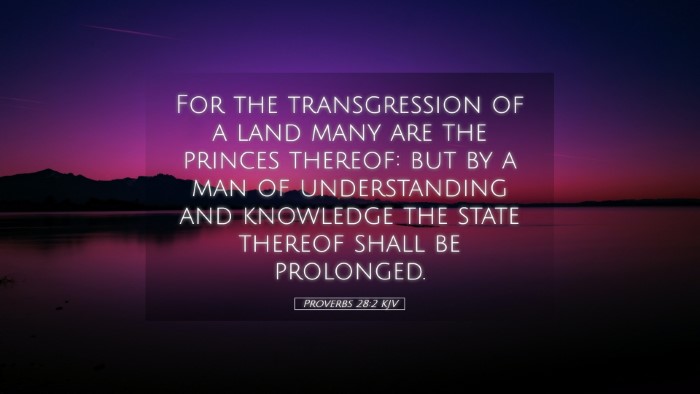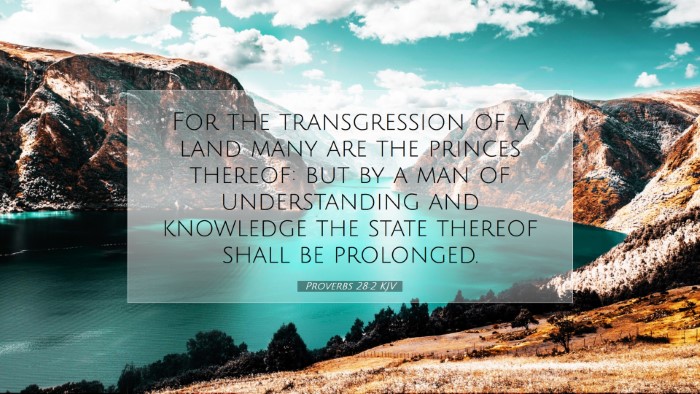Commentary on Proverbs 28:2
Verse: "For the transgression of a land many are the princes thereof: but by a man of understanding and knowledge the state thereof shall be prolonged."
Introduction
Proverbs 28:2 presents a profound insight into the relationship between sin, governance, and societal stability. This verse illustrates how moral decay and transgression within a land lead to instability and frequent changes in leadership. The contrast is drawn to a ruler who possesses understanding and knowledge, suggesting that wisdom and righteousness can lead to a more stable and secure governance.
Contextual Analysis
1. The meaning of "transgression": In this context, transgression refers to sin or moral failure within a community or nation. It highlights how collective wrongdoing can precipitate chaos and instability in society.
2. "Many are the princes": This expression indicates that in times of moral failure, there is often political instability characterized by a multiplication of leaders. Frequent changes in authority can lead to corrupt governance and hinder the prosperity of a land.
3. The contrast provided: The latter part of the verse brings focus to the necessity of wisdom and knowledge in governance. A ruler characterized by understanding ensures stability and longevity for the land.
Insights from Commentators
Matthew Henry: Henry emphasizes the idea that moral transgression not only affects the individuals but corrupts entire nations. He notes that where sin abounds, it often leads to civil unrest and political upheaval. Leaders may arise and fall quickly due to the unrest that sin fosters. However, he also highlights that a wise leader, gifted with understanding, can bring about a prosperous and peaceful society.
Albert Barnes: Barnes draws attention to the practical implications of this verse in governance. He argues that leadership requires more than just authority; it demands wisdom. The lack of righteousness leads to frequent changes in leadership, which affects the overall health of a nation. In contrast, a ruler who possesses both understanding and knowledge can bring stability, suggesting the need for leaders who govern according to moral and spiritual principles.
Adam Clarke: Clarke delves into the causes of governmental instability linked to moral transgressions. He interprets "princes" as indicating not just political leaders but also anyone in positions of influence. His commentary acknowledges that instability arises not only from ineffective leadership but also from a general ethos of unrighteousness within the populace. He underscores the importance of understanding and moral integrity in leadership for the continuation of peace and stability.
Theological Themes
- Divine Order: The verse suggests a theological principle where God's order is maintained through righteousness. When society turns to sin, it disrupts this order leading to chaos.
- The Role of Leaders: It reinforces the notion that leaders bear a significant responsibility in shaping the moral fabric of society. The character of leadership determines the state of the nation.
- Wisdom as a Virtue: The emphasis on understanding and knowledge indicates that divine wisdom is a crucial component for effective governance.
Practical Applications
For pastors and church leaders, this verse serves as a reminder of the importance of moral integrity in both personal and communal life. It calls for an emphasis on teaching righteousness in congregations that could influence the broader community.
Students and theologians may reflect on the implications of this verse for contemporary issues of governance, social justice, and the moral responsibilities of leaders today. The teachings derived from Proverbs 28:2 can lead to discussions about the ethical obligations of those in power and the wider implications for society when leaders fail to embody knowledge and understanding.
Conclusion
Proverbs 28:2 serves as a succinct yet powerful reminder of the interconnectivity between sin, leadership, and societal well-being. The insights gathered from public domain commentaries illuminate the way forward for individuals and communities seeking to foster wisdom and righteousness in their leaders, thereby cultivating a society characterized by peace and stability.


